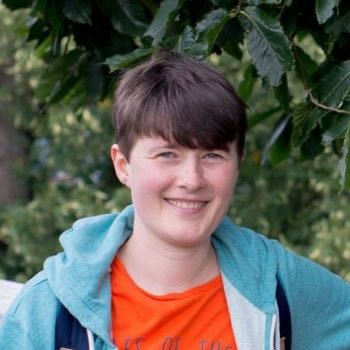You may have seen reports on the media recently about the fine levied against Keurig Canada for misleading advertisements about the recyclability of its coffee pods. But you may not know that the law professor who was central to bringing this about is a parishioner in our diocese.

Calvin Sandborn is a professor in the faculty of law at the University of Victoria, legal director of the Environmental Law Centre and a parishioner at St Michael, Victoria. Sandborn and his colleagues at the Environmental Law Centre submitted a report to Competition Bureau in 2019 regarding Keurig’s misleading advertisement claims that its coffee pods can be easily and widely recycled in Canada — in fact, they are only recyclable in British Columbia and Quebec and must be cleaned and the foil top removed before entering the recycling system.
After reaching an agreement with the Competition Bureau, Keurig Canada must now pay a $3 million penalty and donate $800,000 to a Canadian charitable organisation focused on environmental causes. It must also pay $85,000 to cover the costs of the Bureau’s investigation and, perhaps most significantly, Keurig Canada must publish notices online and in the media, as well as via its email list, about the inaccuracy of its recyclability claims.
“It undercuts their marketing,” says Sandborn. “They published an annual report saying they had to convince people they were sustainable. This publicity is contrary to their marketing and advertising. I think this is what’s needed. If we allow deceptive greenwashing in advertisements to continue then consumers can’t make good environmentally sustainable choices. Those kinds of choices could be a big driver of environmental change, but that can’t happen if there’s inaccurate information out there.”
Just last week, the Competition Bureau released a news item warning Canadians to be on the lookout for greenwashing. The news release cites a global review, which showed that up to 40 per cent of green claims could be misleading consumers.
In 2018, Synod passed a motion of single-use plastics, which committed the diocese to ending the purchase of single-use plastics in parishes and the synod office by 2023. Sandborn believes this kind of action is important as part of a “wide approach.”
“We [the Environmental Law Centre] played a role in the federal government’s draft regulation banning single-use plastic. The draft regulations have been published for comment, so we’ll submit to that.”
On the question of whether his faith plays a role in his environmental law work, Sandborn says, “My Christian faith gives me the hope and optimism to keep working on the seemingly intractable environmental challenges we face. Without that faith and hope, I think I would be less effective.”



